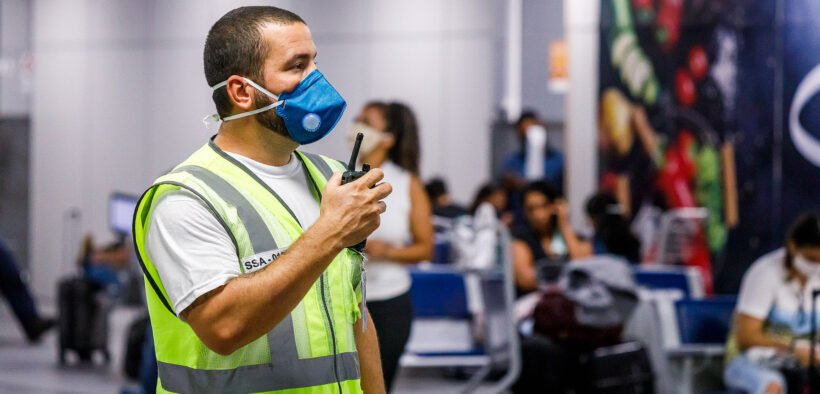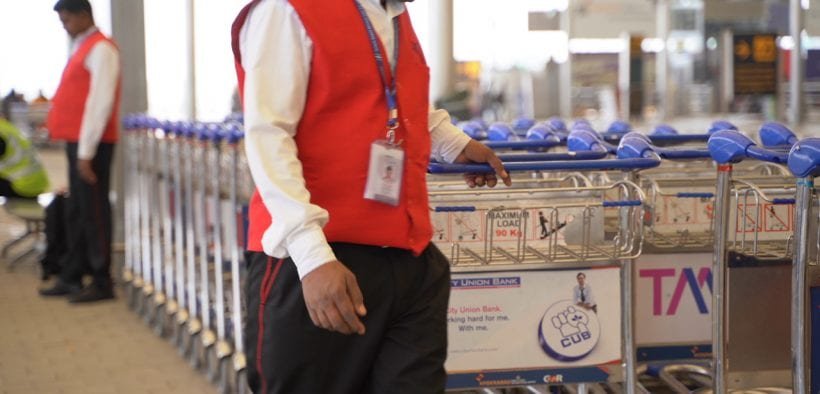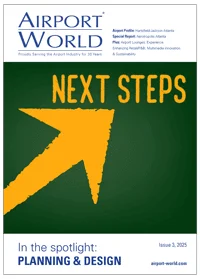Airport staff recruitment: expanding the net
Share

Digital technology can help airports access new talent to fill major labour shortages, writes Jess O’Dwyer.
As a result of various factors including the impact of the global pandemic, Brexit and the war in Ukraine, aviation is one of many industries struggling to find and recruit the staff that they need to meet their requirements.
Evidence suggests that this is having an impact on ground-based operations, airports and airlines across the globe.
To avoid the delays and inconveniences that many passengers experienced in airports last summer, the aviation industry is desperately trying to recruit staff to boost the numbers in airport roles such as baggage handlers, security staff and other ground staff. Ensuring travellers have as smooth a journey as possible is crucial.

This means airports now need to work harder to attract new workers including prospective employees from diverse talent pools such as migrant and foreign workers that may not speak much of the native language.
Staff shortages are forcing airports to take innovative steps to recruit workers like offering free iPhones and childcare and others will be considering what else they can do to offer potential workers an attractive working environment. If we look at foreign workers, addressing the language barriers will be key.
OVERCOMING LANGUAGE BARRIERS
Recruiting, training and managing foreign or migrant workers who only speak the native language of the country they live in as an additional language requires support to overcome language barriers. Providing this support helps foster a good working culture, optimise productivity, reduce mistakes, boost morale and improve relationships.
This is essential because workers who only speak the native language of the country they live in as an additional language will face challenges dealing directly with customers, colleagues and the general public.

Without the right support this can lead to feelings of isolation and perhaps discourage them from considering applying for airport roles if language barriers are a real pain point for them. Airports must change this to successfully attract this available talent.
Therefore, in my opinion, airport operators need to offer efficient, two-way communication and digital technology can play a crucial role in doing this to open up a wider talent pool. However, implementing certain tools can be costly and take time, which is a luxury that many airports don’t have as the start of the busy summer travel season looms near.
UNDERSTANDING DIFFERENT TRANSLATION TOOLS
There are numerous technology-based translation solutions available that can offer language support to workers and it’s important to consider all the options available and what could be the most effective for your airport. And of course, each option comes with its own advantages and disadvantages.
Firstly, digital translation devices like Pocketalk can instantly translate 82 languages both in audio and text making it clear for the users what is being asked or said.

These devices are also HIPPA and GDPR compliant, alleviating any data privacy issues. They improve communication, reduce delays in translations and reduce the need for human interpreter costs.
There are also free translation tools available that provide instant translations but there are issues with the effectiveness of the translations in some cases and GDPR compliance issues. These tools can often lack minority languages and it’s often those who speak those languages that are most impacted by the communication disconnect.
Finally, the other option to consider is phone translation services like LanguageLine. This service offers effective translations, however, waiting for a translator to assist in certain situations can take time and come with a hefty cost, neither of which may be practical for busy airports.
Ultimately, there is no perfect ‘one size fits all’ solution for airports to overcome language barriers in order to access new talent to fill major labour shortages. But it is something that airport CEOs and senior managers must consider carefully to find and recruit the staff that they need to meet their requirements.
About the author
Jess O’Dwyer is Pocketalk‘s general manager for Europe.






